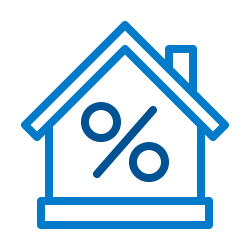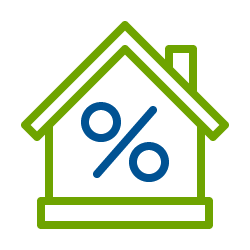Mortgage Matters: Credit Scores and Loan Rates

Lenders typically advertise a range of loan rates for a particular product, or tell you where loan rates start (example: ‘rates as low as X.XX%’). Most borrowers understand that their rate will be based upon their credit history and credit score. When it comes to your interest rate on a loan the size of your mortgage, your credit score can seriously impact the total cost of the loan. Here are a few tips to boost your credit score in the months leading up to your mortgage application.
1) Set up automatic payments. One late payment can ding your credit score, and everyone is susceptible to memory lapses or misplaced mail.
2) Pay down your debt. Whether it’s an auto loan or student loans, make sure you’re paying as much as you can toward these debts. High loan balances and debt-to-income ratios can hurt your credit score.
3) Use your credit. Overusing your credit can hurt your score, but so can a lack of credit history. If you’re young or you haven’t had any kind of loan in your name before, credit reporting agencies don’t have much data to determine whether or not you’re likely to repay a loan.
4) Check for errors and fraud. While you may be working diligently to maintain good credit, an error from the credit reporting agency or a fraudster getting access to your personal information can negate all your good habits. Give yourself plenty of time to get any issues resolved. Visit the “resources” tab on the Centra website for a link to get a free copy of your credit report.
Once you starting shopping for a mortgage, be sure to compare the right numbers. Comparing interest rates will not necessarily help you find the best deal. Annual Percentage Rate, or APR, shows the full price of the loan. The APR includes the interest rate, fees, and any discount points you must pay.














